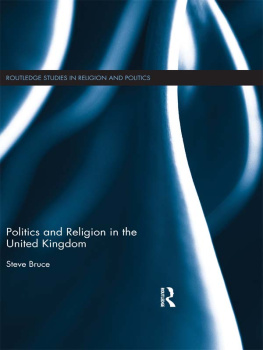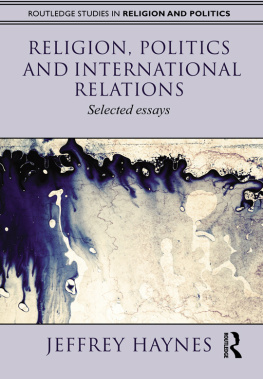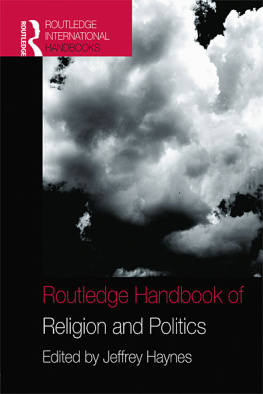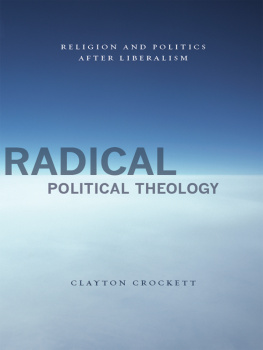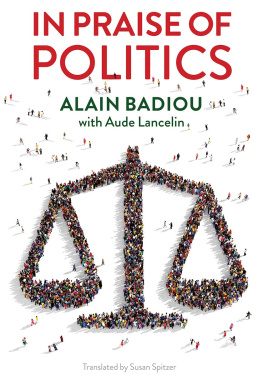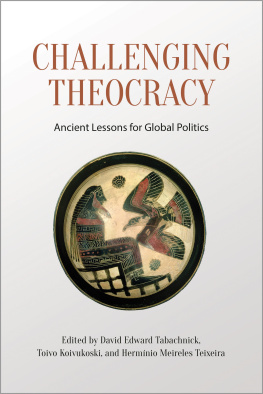1. Introduction
Most of the articles in this collection were first presented in a workshop held on and with Simon Critchley at the University of Texas at San Antonio in February 2010. Each participant in the workshop was invited to comment on some aspect of Critchleys work, or develop, in his or her own way, some theme that emerges from Critchleys work. The workshop was therefore not dedicated solely either to philosophical commentary or to common thematic engagement, but rather represented a hybrid of the two. And this volume inherits that hybrid nature: in part it is one of the first collections of secondary texts on Critchley; but in part it is also an autonomous elaboration or contestation of some preoccupations shared by Critchley and the authors.
In addition to the conference papers, this collection concludes with the transcript of an interview with Simon Critchley conducted at the North Texas Philosophical Association meeting in 2012.
Despite the broad theme of the conference, many of the papers and much of the discussions revolved around Critchleys analysis of the intersection of politics and religion; this provided the point of convergence for the papers and it constitutes the focal point of this collection.
Concerns about the intrication of the political and the theological are as old as political theory itself; perhaps as old as politics, as Agambens work attempts to show () is rife across liberal democracies.
This new imaginary is of course itself, in a dully familiar irony, partly the projection of a profound, and profoundly inconsistent, streak of theology within the self-articulation of Western liberalism itself. Such liberalism is, especially in the United States, and especially since 2001, shot through with messianism and theocracy, from George W Bushs claim that god wanted him to run for president to the Protestant rhythms of Barack Obamas best rhetoric. And thus global politics appears to take place simultaneously on military and metaphysical planes, as the clash between deities and their representatives rather than peoples and their representatives.
The practical dilemma can also be traced at the theoretical level, going back at least to Hegels critique of the abstraction of Kants moral and political theory, and recapitulated in recent political theory as the communitarian critique of Rawls and Habermass neo-Kantian liberalism exemplified by, among others, Alasdair MacIntyre (). Proponents of this critical view argue that the conception of the self required by liberalism is in some sense too thin, too abstracted from the substantive concerns of actual people, embedded in local traditions, and, in particular religious traditions. Rawlss conception of the right as distinct from the good, for instance, requires political engagement to be based on ones identification with a self located behind the veil of ignorance, as removed from its actual characteristics and convictions as Kants noumenal self (as also, of course from its gender).
Although this critique is a general one, it is religious traditions, beliefs and orientations that pose a particular problem for liberalism. Strongly binding, such orientations are, in part, orientations towards the political itself. Liberalisms tolerant respect for religious points of view in fact systematically misrepresents them as purely private matters of individual belief. The communitarian critique opens the way for an insistence that politics engage with religion, as the historically privileged site of substantive commitments, rather than present itself as above the fray of, and negotiating between, such values. This theoretical movement recapitulates the empirical movement, described above, from the observation that the Western other (both spatially and temporally, in the past of the West) integrates the political and the religious, to the realization that Western politics is itself indissolubly intricated in the religious, as exemplified most famously by Carl Schmitts pithy phrase political theology, and as taken up most recently especially by Giorgio Agamben (e.g. ).
It is noticeable that both communitarianism in general and the claims of political theology in particular are associated with a broadly conservative movement, with an attempt to resist the most deterritorialized aspects of Western modernity and to recapture a supposedly lost era of belief and commitment. What Critchley, especially in his recent Faith of the Faithless (), has done is to reframe the issue of political theology from a progressive perspective.
This is an important move because it permits the left to occupy a space that would otherwise be the sole preserve of the right, increasing the dangers of fundamentalism. But it is, according to Critchley, also important for a different and more basic reason: to avoid nihilism. The argument of Critchleys ): in the earlier text, Critchley identifies the snare of nihilism in its characteristic symptom in liberal democraciesmotivational lethargy; in the later book he argues that a certain moment of religiosity is necessary for any kind of politics to be effective, even, especially, for an effective progressive politics.
But this move is as delicate as it is significant, for progressive politics is tied to secularism and the dangers of religious fanaticism now arise on the left. Critchleys argument is correspondingly supple, and can be seen to take place across three axes, which correspond to the three points of application of the papers in this collection.
Political Theologies Left and Right
In the first place, Critchley takes on concrete, actual political theologies. In part he is critical of extant Schmittian right-leaning traditional political theologies; but he also has a richer range of religious reference that enables him to mine even just Christian theologys more recondite moments for revolutionary political theologies as a counter to the more usually reactionary political theologies of Schmitt and his contemporary neo-liberal followers: it seems to me, Critchley writes, that the left has all to easily ceded the religious ground to the right (, p. 25). The first three papers in the volume address this first move. Critchley himself, in You are Not Your Own: On the Nature of Faith provides a supple re-reading of Paul and Pauls own significance for politics. In the second paper, Politics, Anthropology, Religion: Religious Particularism, Anti-Somatism, Philip Quadrio takes on a different political theology presented by Critchley, his mystical anarchism, finding it politically wanting. And the last paper, Welchmans Border Sovereignty, argues that some of the apparently paradoxical features of the spatiotemporality of political borders are the effects of a quite particular political theology, one that maps the creation of the polis onto a non-spatiotemporal act cognate with gods creation.
Critchley himself provides a re-reading of Paul that opens this volume. For Critchley, Paul is always reformation, and the return to Paul is always a call for reformation, a call that is, with Paul, constitutive of the gesture of the Christian. Indeed, since Paul does not call himself a Christian, one might say that the reform of Christianity actually predates its institutional existence: Christianity is reformed Judaism.



